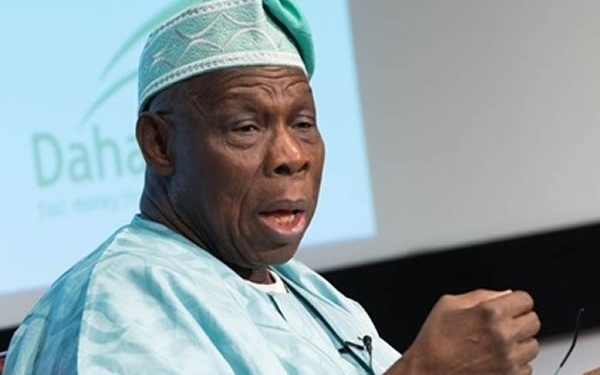Olusegun Obasanjo, former President of Nigeria has stated that he is worried about the growing number of out-of-school children in the country.
This was stated on Thursday by Obasanjo at the opening of the GOTNI leadership centre in Abuja.
On Wednesday, Rahama Farah, head of the United Nations Children Fund (UNICEF) office in Kano, said more than 18.5 million children in Nigeria don’t have access to quality education.
Speaking on the issue of out-of-school children, Obasanjo said Nigeria won’t make significant economic progress until children get access to education.
“When people come to me and say you are doing well, I say ‘no, that is not what I want because I am in a place to do well’,” he said.
“Don’t come and tell me that I am doing well. I want you to tell me what I need to do and to do better. That is what I want to hear and not for you to come and tell me I am doing well.
“The truth is that there is nobody that is born without some amount of innate leadership capacity and it is development that is needed. By the time we come to the GOTNI leadership centre, a bit of it is learnt.
“We should not forget that a lot starts from home, a lot in the school, a lot in the church and the mosque, a lot within the community itself. If we fail in all those areas, you won’t even get them to come here.
“This is one aspect of our life. The other aspect is what we do. I am worried because no matter what we do here, as long as we have the type of situation we have now of 15 million children that should be in school that are not in school, if all of us in school are graduates of GOTNI leadership centre, there will still be that gap of those who should be in school that are not educated.”
The former president also said Nigeria needs quality leadership that can make the right policies for the country.
“When you talk about the problem of an African country and particularly of Nigeria, they will say it is leadership — leadership deficit and leadership deficiency — and both can be taken care of in this GOTNI leadership centre,” he said.
“Leadership can be taught. Leadership can be acquired just like you can teach anything else. And anything that can be taught, can be learnt. So, if leadership can be taught, it can be learnt. So, people must be ready to teach and learn leadership.”
In his remarks, Linus Okorie, the institute’s proprietor, said the centre’s goal is to develop quality leaders and promote competency at all levels.
“The investment that we are making today, some of it might not be speaking right now in the political space, but in the organisations, we are already seeing stories of transformation and change going on,” he said.
“All I want is a critical mass of human beings investing in this journey where we can grow leadership from high school up to political level.
“Now that we are in the political period, anybody who wants to seek political office at whatever level, must come and sit down and understand what leadership is about so that when they get into leadership positions, they will do well because they have been groomed.
“They understand leadership competencies. They are visionary, men and women of honour and they can make things happen. For me, it’s in my agenda to transform leaders and create values. We must invest in them.”










Discussion about this post